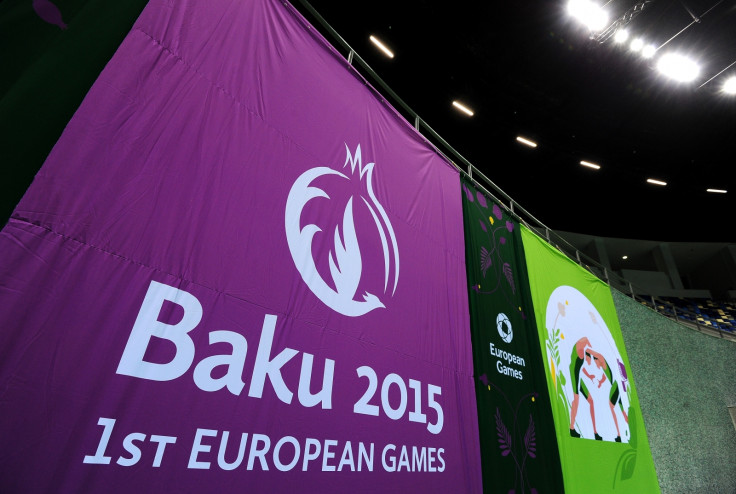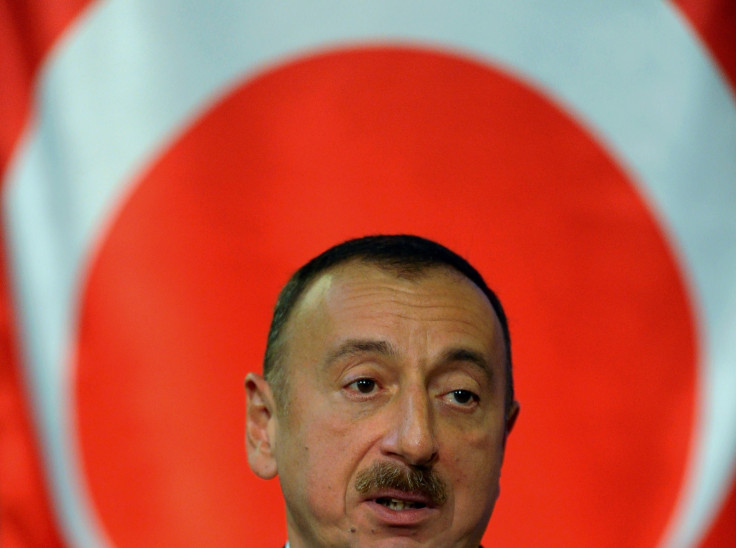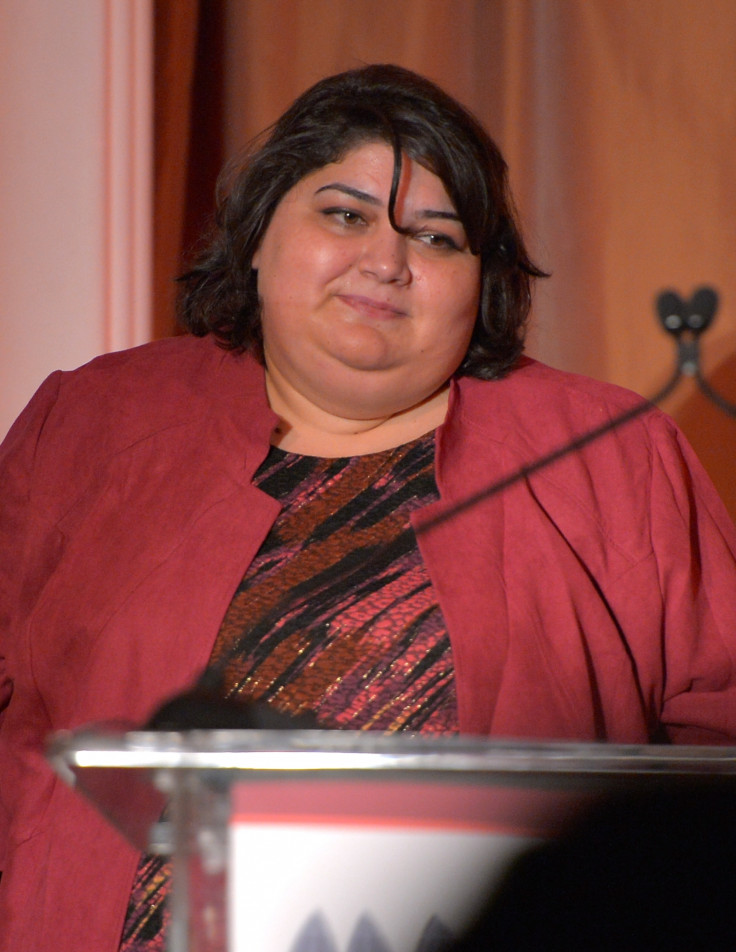Baku 2015: Azerbaijan government 'docking staff pay to fund bloating European Games costs'

Azerbaijan's government is allegedly docking public sector workers' salaries as an informal tax to help pay for the Baku 2015 European Games.
One human rights activist in the Azeri capital Baku confirmed to IBTimes UK that the government had been coercing workers to make "donations" to help fund the Games, the first of their kind, which comes in the form of a lower salary at the end of the month.
It poses difficult questions for Team GB over whether they should take part in the Games, overshadowed by Azerbaijan's worsening human rights record. Azerbaijan is paying national athletics teams to compete. Team GB had not at the time of publishing responded to a request for comment.
Other sources on the ground in Azerbaijan have also confirmed the reports. One Azeri source who lives and works in London, but still has family and friends in Azerbaijan, said he had heard such reports from the country, though had not seen anything concrete himself.
This supports a similar report at the end of April 2015 on EurasiaNet.org. From the report:
Some economists, who spoke on condition of anonymity, allege that the government is forcing employees at some state agencies, such as the tax ministry and State Customs Committee, to take pay cuts to meet these costs. One former Customs Committee employee told EurasiaNet.org that employees already have lost a monthly bonus, an unofficial payment that topped up mid-level officials' salary of 670 manats ($637) per month. The reason cited, he alleged, was the European Games. The payments supposedly will resume after the Games are over, he said.
The loss amounts to 70% of the Customs Committee employees' usual pay, another employee told EurasiaNet.org.
According to the human rights group Freedom House, reports in the Azeri-language media have claimed that the government is forcing private businesses to make these payments so it can afford to host the Games, which are costing $6.5bn (£4.2bn, €5.8bn).
"When a number of businessmen refused to make such contributions, they were immediately detained for alleged corruption and other charges," said Freedom House.

The Azeri government has not at the time of publishing responded to a request for comment from IBTimes UK about docking workers' pay to fund its spending on the Games, such as lavish new stadiums and refurbishing areas of Baku. But a spokesperson for the Ministry of Taxes had previously denied similar allegations made in EurasiaNet.org.
President Ilham Aliyev runs Azerbaijan. He took over from his father Heydar Aliyev in 2003. Transparency International ranks Azerbaijan among the most corrupt countries in the world. And there is little opposition allowed by the state to the ruling administration.
Ahead of the Games, which open on 12 June, the Azeri government has launched a crackdown on civil society. The government has locked up some of its most prominent critics in the build-up.
Among them is is Leyla Yunus, director of the Institute for Peace and Democracy, who is awaiting trial for what campaigners say are "spurious" charges, including treason and illegal entrepreneurship.

Khadija Ismayilova, a journalist for Radio Free Europe/Radio Liberty who has investigated the allegedly corrupt but lucrative business links of the ruling Aliyev and Pashyeva families, has also been detained on charges including "abuse of power and inciting someone to attempt suicide".
"Sport isn't above human rights," said Gulnara Akhundova, an Azerbaijani activist in exile and a part of the Sport for Rights campaign.
"In the run-up to the European Games, the government of Azerbaijan has arrested the country's most prominent human rights defenders and journalists – yet the President of the European Olympic Committees has praised its leadership.
"This is another damning indictment of the morals of international sport."
EOC President Patrick Hickey had said in April 2015 that it "has been an absolute pleasure working with the Azerbaijani leadership. Your professionalism and focus has never failed to impress us."
The Aliyev government is accused of "sportswashing", a term which Sport for Right defines as "attempting to distract from its human rights record with prestigious sponsorship and hosting of events including the European Grand Prix 2016, matches in the 2020 European football championship and this month, Olympic spinoff the European Games."
Azerbaijan wants to build closer ties with the Western world, but it does not want to loosen its grip on civil society to do so. The pre-Games crackdown suggests this stance is not about to change, despite the wave of negative publicity for Azerbaijan.
Just days before the Games were due to start, the government barred the human rights group Amnesty International from entering the country. Amnesty had been planning to meet with activists and campaign for the release of Azeri political prisoners. Azerbaijan officials at the Embassy in London claim the Amnesty visit has been "postponed", not cancelled.
This is because "in view of the fact that such a large scale sports event is taking place, the Embassy is not in a position to assist the mission," said Polad Mammadov, a spokesman for the Embassy of Azerbaijan in London.
"Regarding allegations about the so-called 'crackdown' on human rights defenders and restrictions on the media, we would like to make it clear that fundamental rights including the freedom of press and freedom of expression are constitutional rights and guaranteed and protected by the relevant laws of Azerbaijan," Mammadov said.
"It is unfortunate that certain individual cases where professionals breach the law and tend to use their political views as a shield, are generalised. Law is only called law when it is applied universally; otherwise it becomes an instrument of repression."
© Copyright IBTimes 2025. All rights reserved.






















